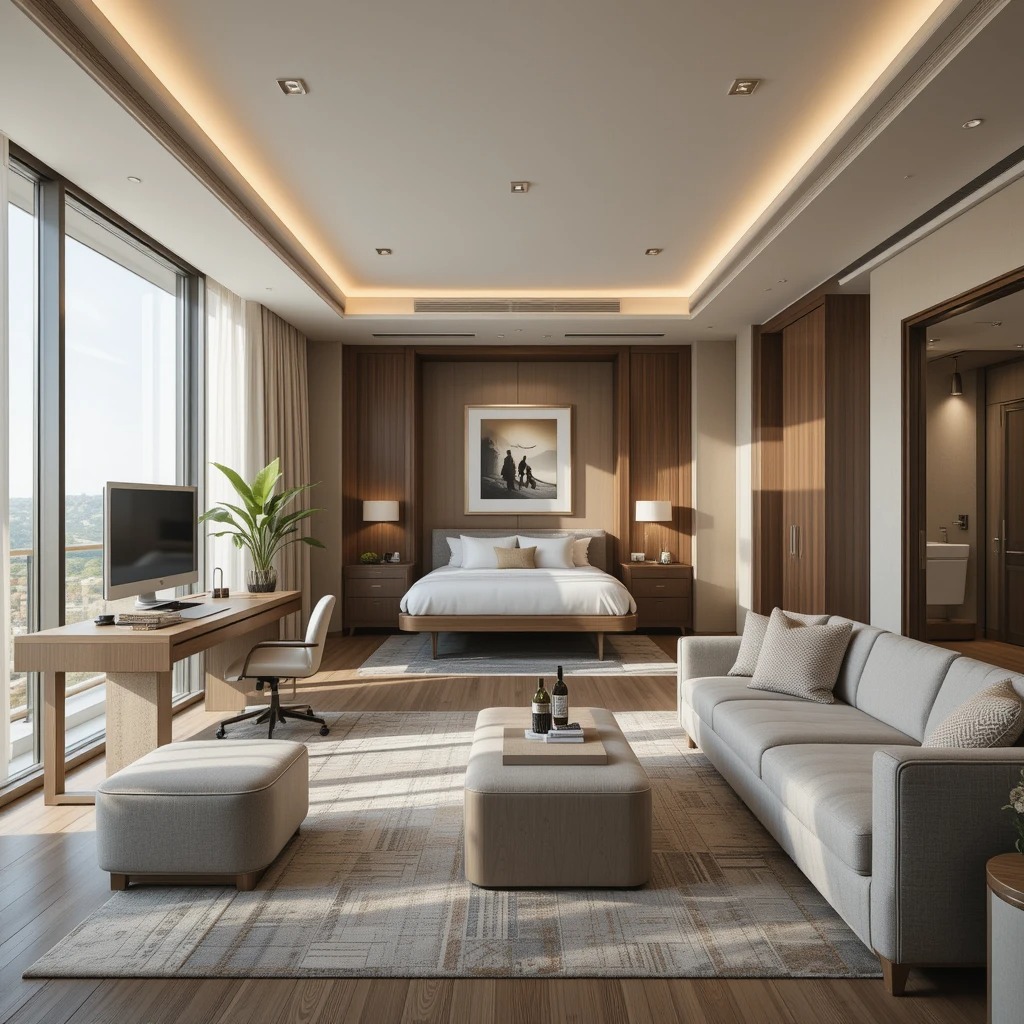
The Art of the Modern Hotel Room: Crafting Memorable Stays
Today's hotel guests seek more than just a place to sleep; they desire a memorable experience. The best hotel room layouts move beyond rigid, bulky designs to prioritize flexibility, smart technology, and multifunctional spaces, creating an effortless and personalized stay. Whether optimizing a compact room or redefining a luxury suite, modern hotel room layouts focus on enhancing guest comfort, convenience, and overall well-being.
Here are key ideas for transforming hotel rooms into modern, guest-centric havens:
1. Maximize Space with Off-the-Floor Furniture & Vertical Storage: Space efficiency is paramount, especially in smaller rooms. Floating furniture, like wall-mounted desks and nightstands, creates a sleek, open feel and simplifies cleaning. Built-in luggage benches with overhead storage and tall cabinets utilize vertical space, keeping rooms organized and clutter-free. Consider pocket doors for bathrooms and closets and under-bed storage to maximize floor space.
2. Multifunctional Furniture for Adaptable Layouts: Flexibility is crucial for accommodating diverse guest needs. Murphy or sofa beds allow seamless transitions between lounge and sleep areas. Ottomans with hidden storage provide extra seating and discreet clutter control. Folding desks and extendable tables cater to both work and leisure, while convertible furniture, like a coffee table transforming into a dining table, maximizes functionality in compact spaces.
3. Modular Furniture for Customizable Room Configurations: For flexible arrangements without costly renovations, modular furniture is ideal. Its interchangeable components allow easy reconfiguration based on guest preferences, maximizing space and minimizing the need for custom furniture for each room type. This adaptability caters to various traveler needs, from solo business travelers to families.
4. Smart Technology for a Connected and Convenient Stay: Tech-enhanced rooms offer convenience, efficiency, and luxury, improving guest satisfaction while potentially reducing operational costs. Consider mobile-controlled room settings for lighting, temperature, and entertainment. Wireless charging stations, smart TVs with streaming, motion-sensor lighting, smart mirrors, and smart speakers acting as virtual concierges elevate the guest experience. Ensure data privacy when implementing smart technology.
5. Strategic Lighting to Enhance Mood & Functionality: Lighting goes beyond illumination; it sets the mood and enhances functionality. A well-designed, layered lighting plan combines ambient lighting (ceiling fixtures), task lighting (reading lamps, bedside sconces), and accent lighting (spotlighting artwork). Optimize natural light with large windows and mirrors, and install dimmers and color temperature control for adjustable brightness and warmth, catering to both work and relaxation.
6. Personalization: Give Guests More Control Over Their Stay: Modern travelers seek personalized experiences. Offer modular layouts with adjustable beds, movable partitions, and flexible seating. Voice-activated assistants, personalized welcome screens displaying guest names and recommendations, and in-room tablets for service requests enhance individual control. Even a pillow menu allows guests to customize their sleep comfort.
7. Wellness Features for Health-Conscious Travelers: Incorporate health-conscious features to promote relaxation and rejuvenation. Air purification systems improve air quality, while ergonomic furniture enhances posture and comfort. Wellness-focused minibars with healthy snacks and hydration stations offer alternatives to traditional options. In-room exercise spaces with small equipment or guided meditation apps, and biophilic design elements like plants, create a calming environment.
8. Sustainability in Hotel Room Design: Sustainability is an essential element of modern hospitality. Implement eco-friendly materials like bamboo flooring, recycled fabrics, and low-VOC paints. Water-saving fixtures such as smart faucets, low-flow showers, and dual-flush toilets contribute to conservation. Automated thermostats, solar-powered lighting, motion sensors, sustainable toiletries, and refillable dispensers promote energy efficiency and reduce waste.
By adopting these modern hotel room layout ideas, hoteliers can create sleek, guest-friendly environments that enhance comfort, efficiency, and personalization, ensuring every stay is memorable.